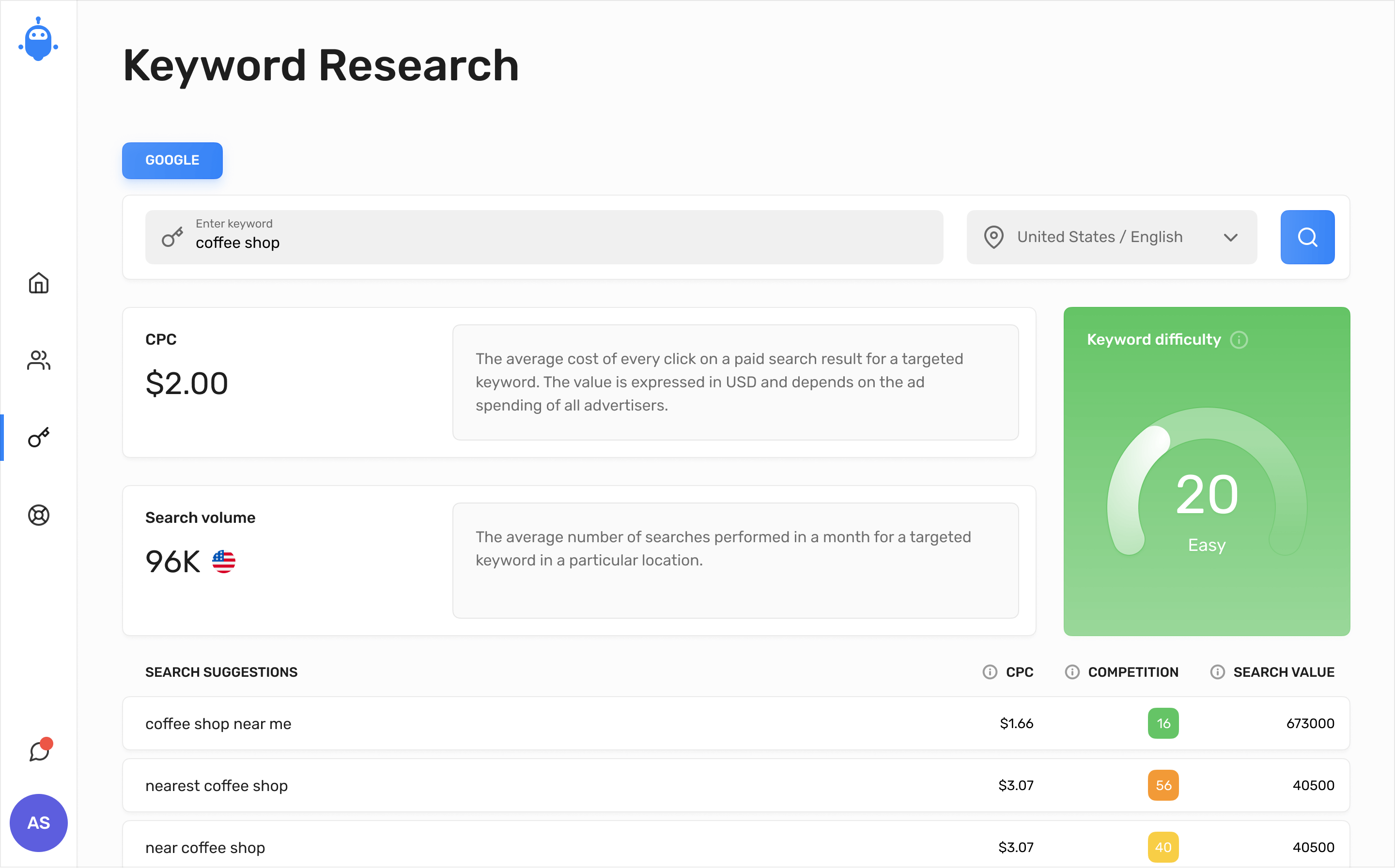Pulse of Information
Your source for the latest insights and updates.
Keyword Research: Digging for Digital Gold
Unlock the secrets of keyword research and transform your content strategy into a goldmine of traffic and engagement!
Understanding the Basics of Keyword Research: A Step-by-Step Guide
Keyword research is a fundamental aspect of search engine optimization (SEO) that can significantly impact your content's visibility and effectiveness. To get started, it's essential to understand your audience's search behavior. Begin by brainstorming a list of topics relevant to your blog and then expand this list using tools such as Google Keyword Planner or Ahrefs. These tools can help you discover related keywords, their search volumes, and competition levels. Knowing how to evaluate and select the right keywords will ultimately guide your content strategy and improve engagement.
Once you have identified a set of potential keywords, it's crucial to analyze their SEO potential. Prioritize keywords based on metrics like search volume, competition, and relevance to your audience. You may want to organize your keywords into categories to streamline your content creation process. For example, you can create a section dedicated to long-tail keywords or local keywords that may have lower competition but are still relevant to your niche. Remember, excellent resources for deepening your understanding of keyword research include Moz's Beginner's Guide to SEO and Neil Patel's insights on keyword research.

Top Tools and Tips for Effective Keyword Research in 2023
Keyword research is a critical component of any successful SEO strategy, and in 2023, leveraging the right tools can significantly enhance your efforts. Start with Google Keyword Planner, a free tool that provides insights into search volume and trends, helping you discover relevant keywords for your niche. Additionally, consider using SEMrush for its comprehensive keyword analysis features, including competitor research and keyword difficulty metrics. Combine these resources with tools like Ahrefs, known for its extensive backlink analysis and organic traffic data, to develop a robust keyword strategy that targets both short-tail and long-tail keywords effectively.
Another vital approach to effective keyword research in 2023 is understanding search intent. Tools like AnswerThePublic can help you visualize the questions and phrases users are searching for, allowing you to align your content with their needs. It’s essential to focus not only on generating a list of keywords but also on integrating them naturally into your content. Make sure to evaluate the search volume, competition levels, and trends over time to refine your keyword selection. As you create content, remember to incorporate these keywords strategically in titles, headings, and throughout the body copy to optimize for both users and search engines.
How to Leverage Keyword Research for SEO Success: Common Mistakes to Avoid
Keyword research is a cornerstone of successful SEO strategies, but many content creators make critical mistakes that undermine their efforts. One common error is focusing too narrowly on high-volume keywords without considering their relevance to the target audience. While it may be tempting to chase after popular search terms, this approach can lead to a mismatch between user intent and the content provided, resulting in higher bounce rates and lower engagement. To avoid this pitfall, it's essential to analyze keyword relevance through tools like Moz's Beginner's Guide to SEO.
Another frequent mistake in keyword research is neglecting long-tail keywords. These longer phrases may not attract the same amount of traffic as short, competitive keywords, but they often have lower competition and higher conversion rates. For instance, targeting long-tail keywords allows you to capture very specific search queries, making your content more valuable to users and improving your chances of ranking higher on search engine results pages (SERPs). Try using keyword research tools like Ahrefs to identify effective long-tail opportunities that align with your content goals.